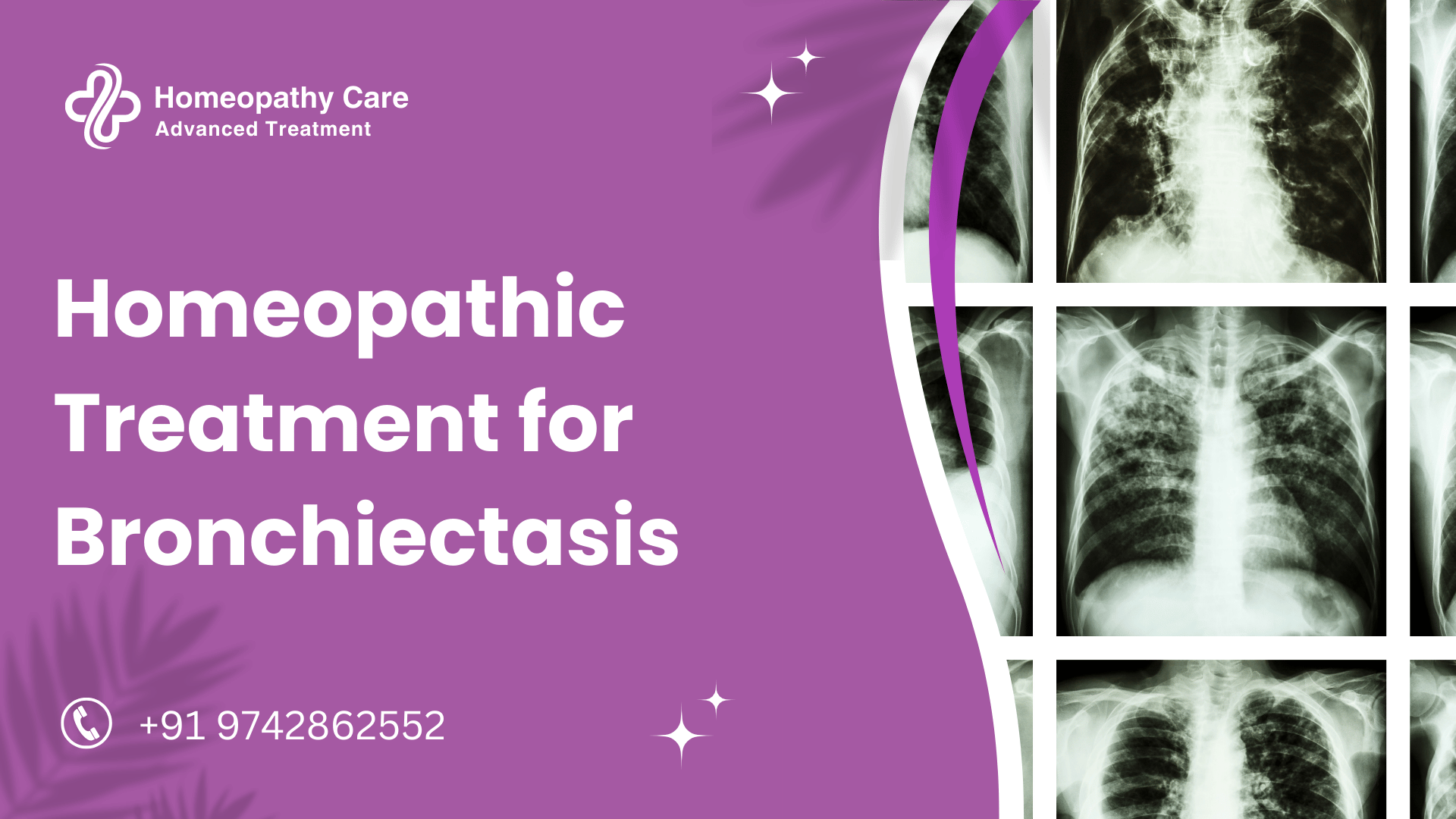Understanding Bronchiectasis: Symptoms and Homeopathic Treatment Options
Bronchiectasis, a form of COPD, can significantly impact one’s quality of life. It’s characterized by damage to the bronchi, leading to frequent lung infections and other respiratory issues. If you or a loved one is dealing with bronchiectasis, it’s crucial to understand its symptoms and available treatment options, including homeopathy.
Symptoms of bronchiectasis often include a chronic cough with excessive phlegm production, shortness of breath, wheezing, chest pain, fatigue, and weight loss. Managing these symptoms is essential for improving daily functioning and overall well-being.
Homeopathy, as an alternative treatment method, offers supportive care for bronchiectasis alongside conventional approaches. While it cannot reverse the damage to the airways, homeopathic medicines can help manage symptoms effectively.
Here are some commonly used homeopathic medicines for bronchiectasis and their corresponding symptoms:
- Antimonium Tart: For excessive rattling cough with difficult expectoration and suffocation.
- Kali Bichrome: Useful for thick, tenacious expectoration and chest soreness.
- Pulsatilla: Indicated for cough with yellowish-green expectoration worsening in warm rooms.
- Silicea: Helpful for offensive expectoration and chest soreness worsened by cold.
- Phosphorus: Prominent for bloody expectoration and chest pain with a heated sensation.
- Arsenic Album: Well-indicated for marked wheezing and cough with frothy expectoration.
- Ammonium Carb: Beneficial for shortness of breath, especially worsened indoors.
- Kali Carb: Indicated for chest pain accompanying other symptoms like cough and wheezing.
- Hepar Sulph: Offers help in cases of purulent expectoration worsened by cold air exposure.
- Stannum Met: Indicated for copious greenish expectoration and weakness in the chest.
It’s important to note that homeopathic treatment should be undertaken under the guidance of a qualified practitioner. Additionally, it’s essential to consult with your physician or healthcare provider before starting any new treatment regimen.
In conclusion, while bronchiectasis poses significant challenges, understanding its symptoms and exploring alternative treatment options like homeopathy can contribute to better symptom management and improved quality of life. Always prioritize your health and well-being, and seek professional advice for personalized treatment recommendations.


